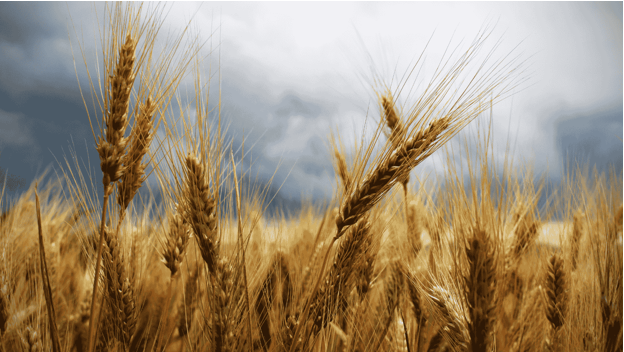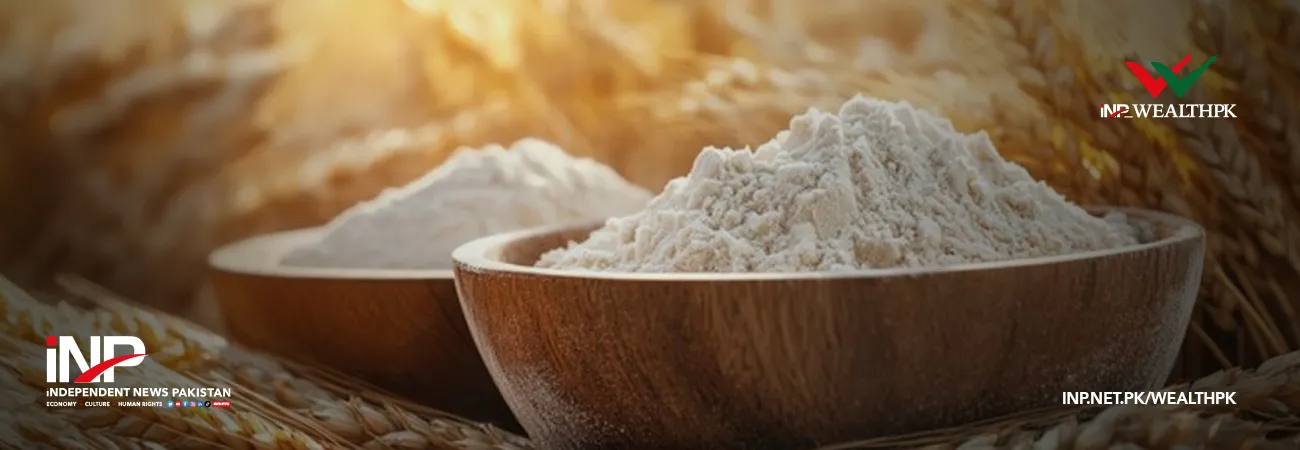INP-WealthPk
Muhammad Saleem
Flour millers have urged the government to import wheat to prevent a looming food crisis in Pakistan as devastating floods have inundated large swathes of farmland across the country’s food basket and caused extensive damage to the grain stock.
Talking to Wealth Pakistan, Riazullah Khan, Chairman of Pakistan Flour Mills Association (PFMA), Punjab chapter, said that Punjab is currently facing a wheat shortage and that the only solution to tackle the situation is immediate imports.
He said farmers had produced a bumper crop that exceeded demand. However, due to the ill-conceived policies, many growers were forced to use the crop as animal feed.
“The government failed to procure sufficient stocks, causing prices to collapse. Farmers, unable to sell wheat at a fair rate, offloaded it at extremely low prices. Feed mills capitalised on the situation, and purchased between 1.5 and 2 million tons of cheap wheat, worsening the shortage,” he explained.
“We kept raising a hue and cry to stop the supply of wheat to feed mills, as there is a huge difference between human and animal food consumption; however, nobody bothered to pay heed to our concerns,” he added.
“The millers are legally allowed to do business with other provinces; however, the government is creating hurdles and has categorically told them that wheat transportation will not be permitted at any cost,” he said.
Riazullah further noted that the mills are currently buying wheat at Rs1,750 and selling flour at the same price, bearing additional grinding costs of Rs800 per 40kg. “We are supporting the government during this crisis, but this burden is not sustainable,” he said.
Khurram Shahzad, Senior Vice-Chairman of PFMA, Punjab chapter, told Wealth Pakistan that exact figures on wheat stocks remain unclear due to poor documentation.
“People fear declaring their wheat because the food department often seizes it with impunity. As a result, true numbers are hidden. However, it is quite clear that we are facing a wheat shortage, which is why the government has restricted its movement to other provinces,” he explained.
He warned that unless the government announces a fair indicative price, farmers will continue to lose confidence, and imports will become inevitable. He estimated the shortage at 1 to 1.5 million tons. He added that if the government does not import wheat, the country should be prepared to face an even bigger crisis next year.
Mr Khurram said that with bread prices frozen at Rs14, this artificially low pricing is distorting the wheat market, keeping rates suppressed and discouraging farmers from future cultivation.
Shafiq Anjum, Chairman of Faisalabad Flour Mills Association, speaking with Wealth Pakistan, said that while the government holds reserves, much of it is kept under “food security.” This policy forces authorities to look abroad to fill the gap.
He argued that the government should allow private companies to import, ensuring wheat enters the local market when needed without destabilising prices. However, he emphasised that the government must maintain strategic reserves to prevent market manipulation.
He cautioned that farmers may shift to alternative crops due to the absence of a support price, which could reduce wheat cultivation further.
Khalid Khokhar, President of Pakistan Kissan Ittehad, talking to Wealth Pakistan, said that flour mill owners argue that there is a shortage of wheat in the country, so imports will be necessary. “But if there’s deregulation, imports shouldn’t be restricted.”
“If the government imports through the Trading Corporation of Pakistan, that will open the door to corruption. It’s better if the government either fully regulates or fully deregulates, instead of adopting a halfway policy,” he underscored.
Khalid said: “As for imports, I believe the first step should be to evaluate how much stock we already have. If imports are needed, they should be handled by the private sector so that the government can avoid corruption.”

Credit: INP-WealthPk









